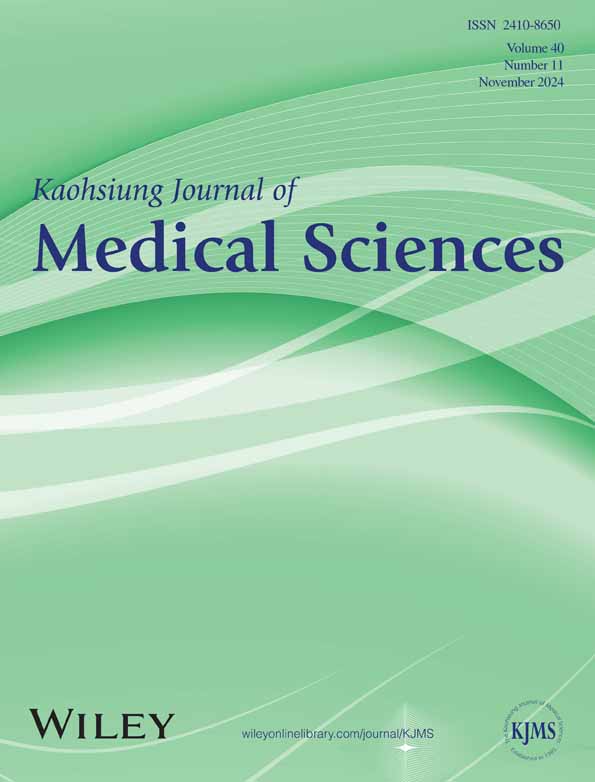The identification and phylogenetic analysis of SARS-CoV-2 delta variants in Taiwan.
IF 2.7
4区 医学
Q3 MEDICINE, RESEARCH & EXPERIMENTAL
引用次数: 2
Abstract
In Taiwan, coronavirus disease 2019 (COVID‐19) involving the delta variant occurred after that involving the alpha variant in 2021. In this study, we aimed to analyze the Delta variant. A total of 318 patients in Taiwan infected with delta variants were identified. The case fatality rate (CFR) of patients infected with delta variants was 0.94% in Taiwan compared with that of those infected with alpha variants (5.95%). The possible reasons for the low CFR might be hybrid immunity due to infection and rapid promotion of the COVID‐19 vaccination program during the alpha variant outbreak. We identified three 21J delta variants. Two long gene deletions were detected in these severe acute respiratory syndrome coronavirus‐2 (SARS‐CoV‐2) isolates: ORF7aΔ91 in KMUH‐8 and SpikeΔ30 in KMUH‐9. Protein structure prediction indicates that ORF7aΔ91 results in malfunction of NS7a as an interferon antagonist and that SpikeΔ30 results in a truncated spike protein (N679–A688del), resulting in a lower infection rate compared with the delta variant without these deletions. The impact of these two deletions on SARS‐CoV‐2‐associated pathogenesis deserves further investigation. Delta variants still exist in many regions in the omicron era, and the backbone of the delta variant genome possibly spread worldwide in the form of delta‐omicron hybrids (deltacron; e.g., XBC.1 and XAY.2), which casts a potential threat to public health. Our study further highlighted the importance of more understanding of the delta variants.台湾地区SARS-CoV-2 δ型病毒的鉴定及系统发育分析。
在台湾,涉及delta变异的2019冠状病毒病(COVID-19)发生在2021年涉及alpha变异的之后。在这项研究中,我们旨在分析Delta变异。台湾共有318名患者感染了delta变异。台湾地区δ型感染的病死率(CFR)为0.94%,α型感染的病死率为5.95%。低CFR的可能原因可能是由于感染和在α变体爆发期间快速推广COVID-19疫苗接种计划而产生的混合免疫。我们确定了三种21J delta变体。在这些严重急性呼吸综合征冠状病毒-2 (SARS-CoV-2)分离株中检测到两个长基因缺失:KMUH-8中的ORF7aΔ91和KMUH-9中的SpikeΔ30。蛋白质结构预测表明,ORF7aΔ91导致NS7a作为干扰素拮抗剂功能失能,SpikeΔ30导致突刺蛋白(N679-A688del)截断,与没有这些缺失的delta变体相比,导致感染率较低。这两个缺失对sars - cov -2相关发病机制的影响值得进一步研究。在组粒时代,Delta变异仍然存在于许多地区,并且Delta变异基因组的主干可能以Delta -组粒杂交的形式在世界范围内传播(Delta -omicron;例如,XBC.1和XAY.2),对公众健康构成潜在威胁。我们的研究进一步强调了更多地了解delta变体的重要性。
本文章由计算机程序翻译,如有差异,请以英文原文为准。
求助全文
约1分钟内获得全文
求助全文
来源期刊

Kaohsiung Journal of Medical Sciences
医学-医学:研究与实验
CiteScore
5.60
自引率
3.00%
发文量
139
审稿时长
4-8 weeks
期刊介绍:
Kaohsiung Journal of Medical Sciences (KJMS), is the official peer-reviewed open access publication of Kaohsiung Medical University, Taiwan. The journal was launched in 1985 to promote clinical and scientific research in the medical sciences in Taiwan, and to disseminate this research to the international community. It is published monthly by Wiley. KJMS aims to publish original research and review papers in all fields of medicine and related disciplines that are of topical interest to the medical profession. Authors are welcome to submit Perspectives, reviews, original articles, short communications, Correspondence and letters to the editor for consideration.
 求助内容:
求助内容: 应助结果提醒方式:
应助结果提醒方式:


